Anti-Israel Columbia protesters refuse to discuss taking down tents as negotiations continue

The organizers of the anti-Israel encampment at Columbia University are refusing to consider taking down the tents until the administration makes progress on some of its demands.
“We are not actually negotiating on the state of the encampment as of now,” Columbia University Apartheid Divest negotiator Mahmoud Khalil told The Post Friday afternoon.
The encampment was on its tenth day Friday, as the university’s leaders seemed to backtrack on its demand for the students to clear off the campus lawn by that morning following an extension from Wednesday at midnight.
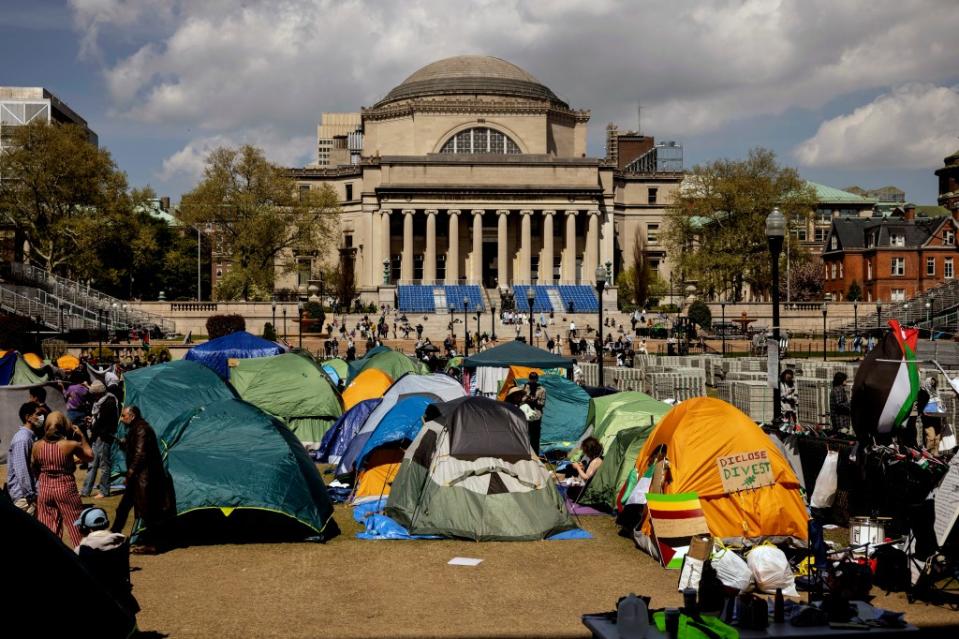
Speaking to The Post on Friday, Khalil said the students were not given a new time limit for getting off the lawn.
“We asked them not to talk about the encampment. We are there to negotiate the demands, not the encampment, and we made it very clear,” Khalil, who is a graduate student, told The Post of the ongoing talks between student organizers and officials.
“The university understood that we cannot operate on the timelines. We cannot operate under time pressure,” he explained.
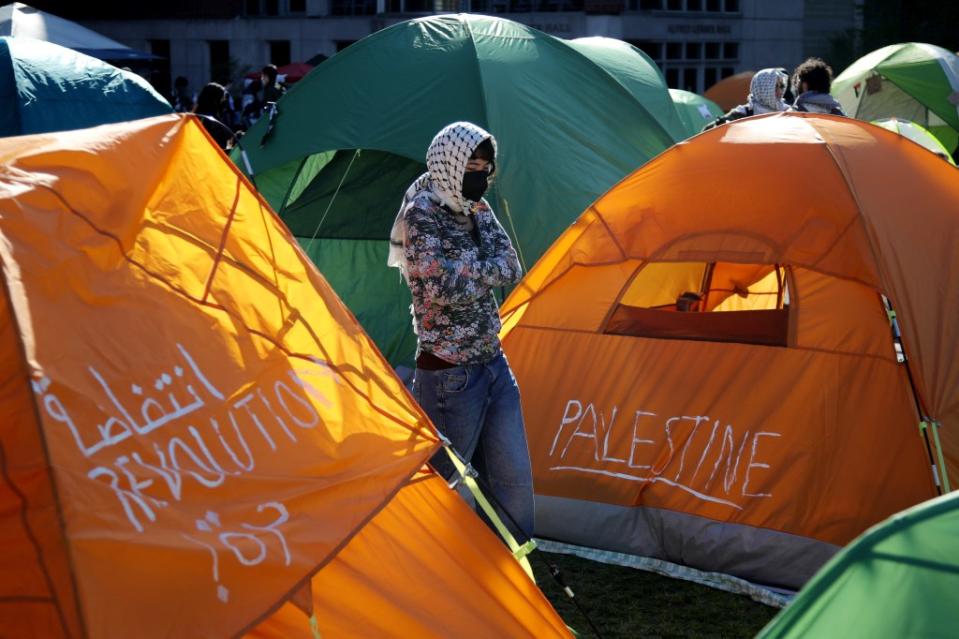
“We want to have negotiations when both parties can meaningfully engage in the conversation rather than a deadline at 12am while we are at a meeting at 8 pm.”
Columbia University Apartheid Divest has five core demands listed on its website, including asking the school to financially divest from “companies and institutions that profit from Israeli apartheid, genocide and occupation.”
The list also insists that the university cut ties with Israeli universities and stop expanding into Harlem, Lenape ancestral lands and Palestine.
The final two demands call for the defunding of campus Public Safety and severing the university’s relationship with the NYPD, and a public statement “calling for an immediate, permanent ceasefire in Gaza.”
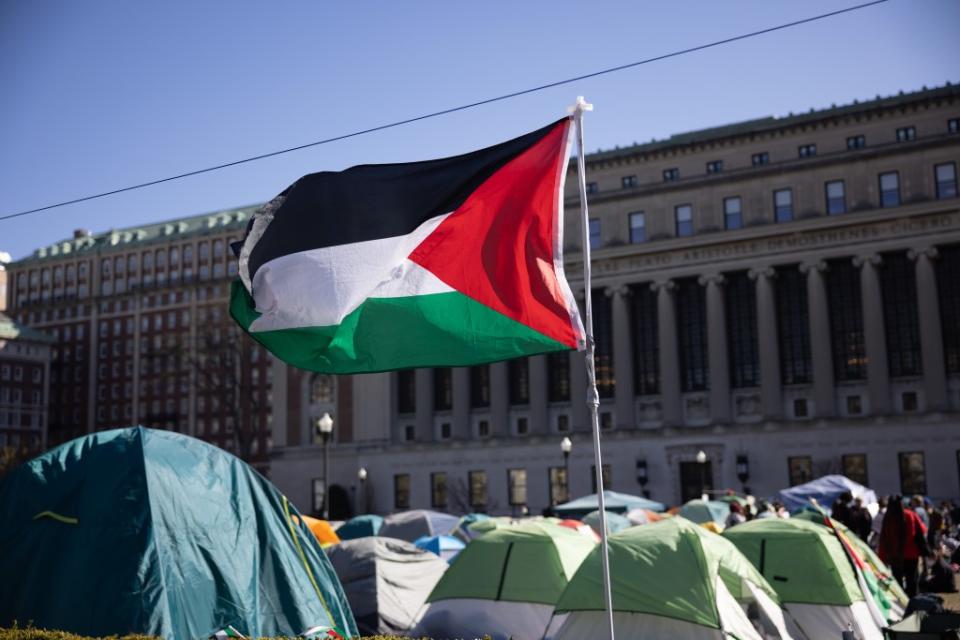
“We have been in negotiations with the University since [last] Friday, but increasingly we are met with an unwillingness to understand what are the core demands of the student movement,” Sueda Polat, another member of the negotiating team, told The Post.
“As we said, time again, at the heart of this action, at the heart of this encampment is the wish for a complete divestment and boycott of institutions that are complicit in Israel’s genocide,” she added.
On April 18, Columbia president Minouche Shafik called on the NYPD to enter the Morningside Heights campus and break up the original encampment after the protesters ignored warnings to move.
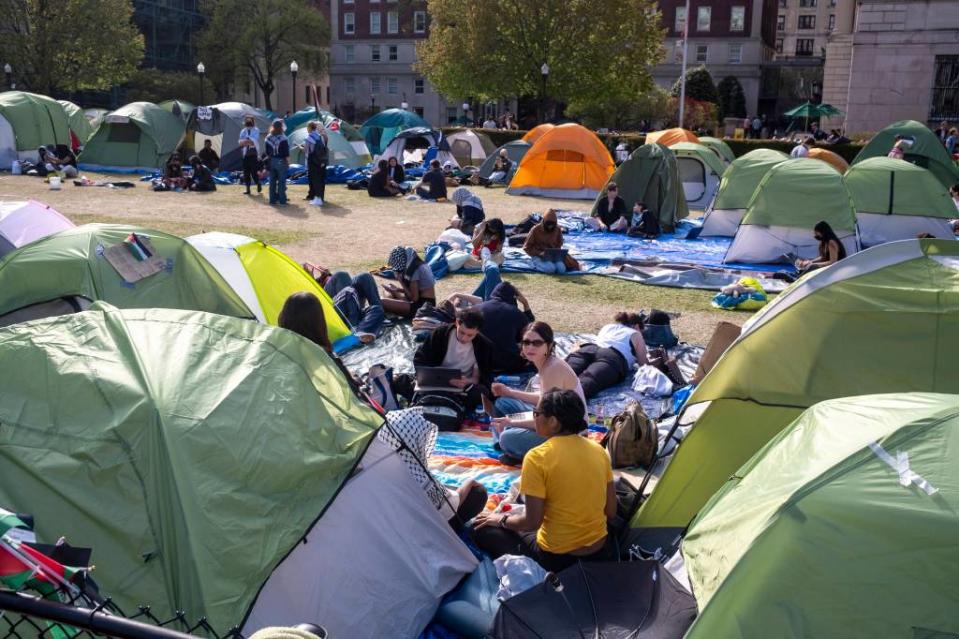
The authorities arrested 108 participants at the site, which has since prompted a movement of similar encampments on university campuses across the country.
“This university has proposed only further engagement with the apartheid state,” Polat said Friday, referring to Israel.
“For example, while we ask for the dual-degree program with a Tel Aviv University — which is directly contradicts, this university’s equal opportunity and affirmative action policies — to be ended, the university has suggested that we increase access to Palestinians by engaging with the apartheid state,” she told The Post.
“On the matter of divestment, which again the priority demand, Columbia has asked students to operate within the confines of bureaucratic red tape, with no assurances of binding divesting decisions, if we end the encampment,” she continued.
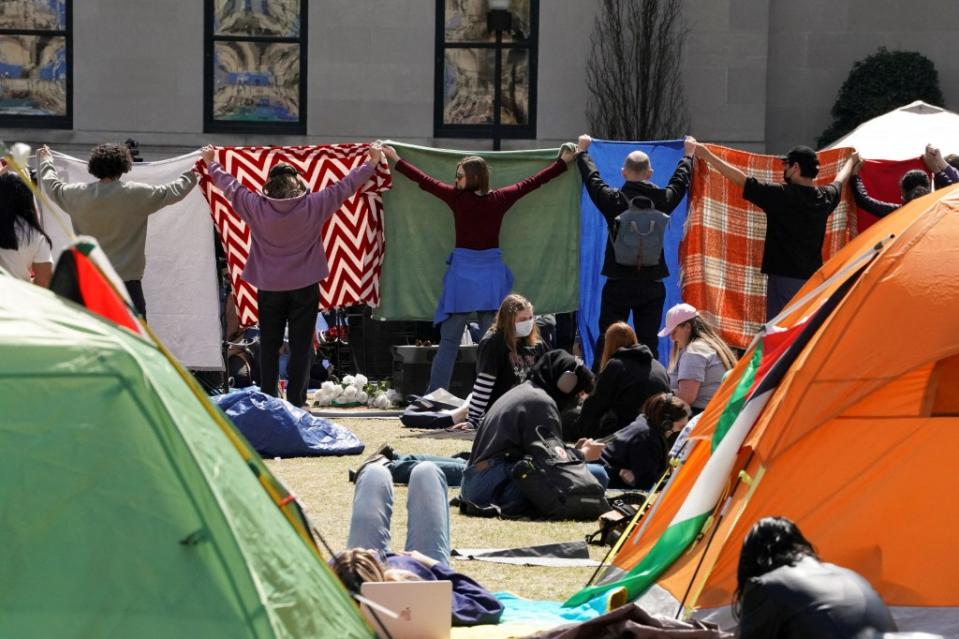
“The university seems to not believe that students can maintain their resolve staying on this lawn, ignoring the reality that over the past 10 days we have demonstrated how committed we are, how high our resolve is, and how truly we wish from the heart for a complete divestment and boycott.
“They believe they can outstand us. We told them that they cannot.”
Columbia and other campuses have been increasingly divided since Hamas’ Oct. 7 terror attack and Israel’s retaliatory bombardment of the Gaza Strip.
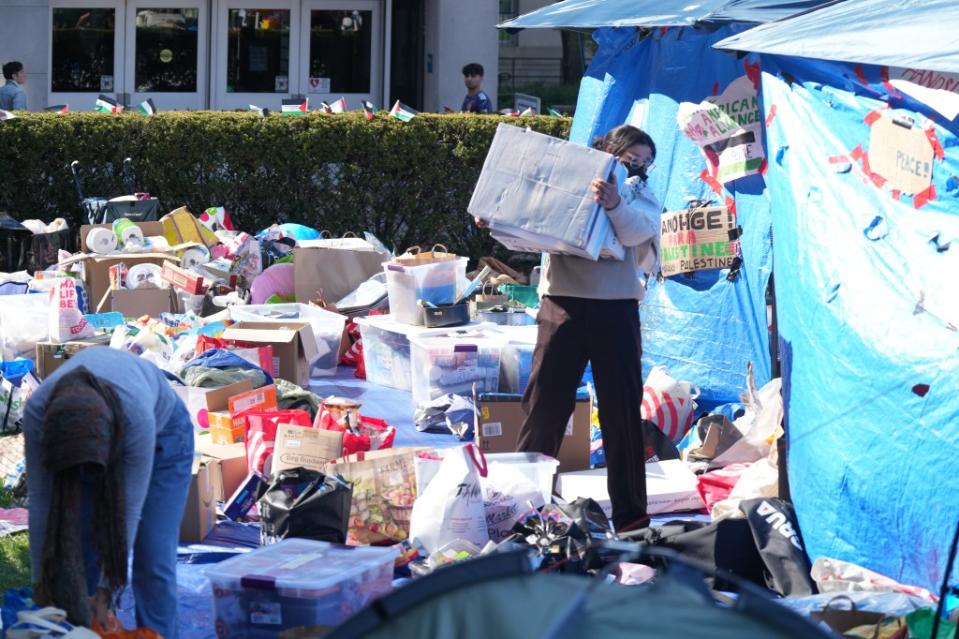
In November, Columbia suspended Students for Justice in Palestine and Jewish Voice for Peace.
Both groups were criticized for seeming to celebrate or excuse the deadly Oct. 7 attack and for promoting ideological language in their critiques of Israel.
In the 10 days since the tent encampment went up, Jewish students at Columbia have reported feeling increasingly unsafe due to protesters calling for Israel’s destruction and even expressing support for Hamas.
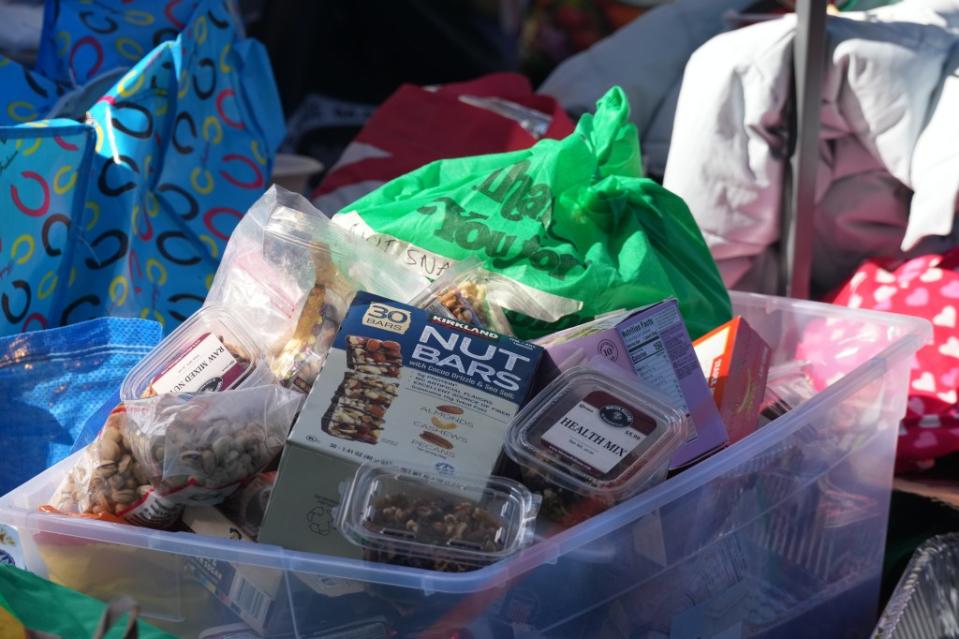
The occupiers have been noshing on fruits, nuts, granola bars and overpriced sandwiches this week and getting sundry items like toothpaste, garbage bags and feminine hygiene products delivered.
Photos taken by The Post Friday showed the once-stately campus looking like an over-crowded rummage sale.
Earlier this week, the university announced that the final weeks of spring classes would be hybrid due to the strife on campus.
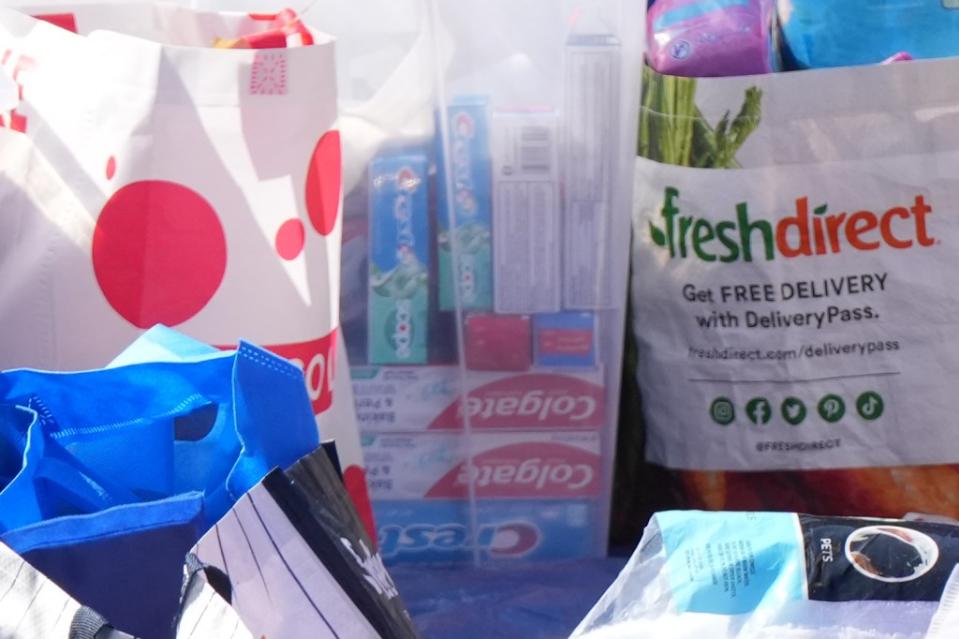
After nearly two weeks of upheaval, others in the community say they are starting to get fed up.
“The friends that I have, we are definitely over the protest in terms of, you know, we want to live our lives,” Noa Fay, a 23-year-old Barnard senior, told The Post on Thursday.
“They are selfish. They are not taking the other students into consideration,” another student said of the protesters.

 Yahoo News
Yahoo News 
